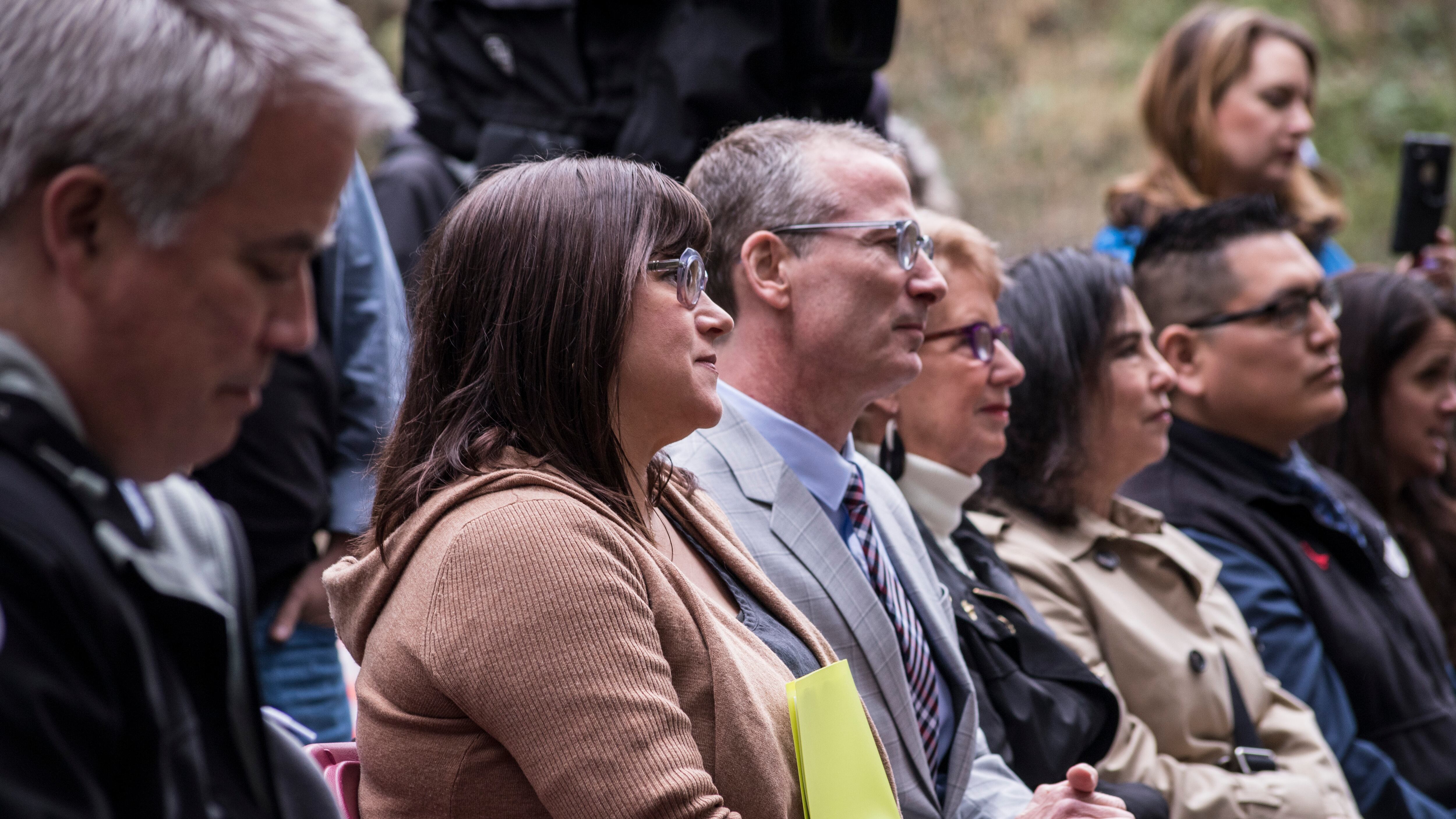When former Portland Mayor Sam Adams announced Jan. 15 he'd challenge City Commissioner Chloe Eudaly in the May 2020 primary election, nobody was more surprised than the incumbent herself.
"I just don't think it's a good look," she told The Oregonian. "It doesn't make sense."
With an unprecedented four of five seats on the Portland City Council up for grabs, Adams had choices—and the path of least resistance appeared to be the vacancy created by the Jan. 2 death of Commissioner Nick Fish.
So when Adams decided to mount a challenge to Eudaly instead, most observers were flummoxed—and many young progressives shared Eudaly's displeasure.
Samantha Gladu, executive director of Next Up—the voter-mobilizing nonprofit formerly known as the Bus Project, is among those who panned Adams' decision.
"His economic development plans crushed and sterilized the city, and he sat by and did nothing for renters and communities of color as our housing crisis emerged," says Gladu, speaking for herself, not her organization. "Sam and Commissioner Eudaly represent two very different versions of old Portland, and only one of them is in line with the future our city deserves."
Adams' calculation broke with Portland's historical queasiness around challenging incumbents but was hardly without precedent. Eudaly won her seat in 2016 by upsetting incumbent Commisioner Steve Novick. But the pushback still makes sense: Adams' bid threatens years of gains by outsiders who have placed women in the majority at City Hall. Adams, who spent 20 years in City Hall ending in 2013, is the ultimate insider—and could wrest power back from people who just got it.
But Adams' decision also has its logic: Eudaly has made enemies among neighborhood associations, business groups and landlords. Those vulnerabilities offset the considerable baggage Adams lugs into his comeback bid.
If Adams makes Eudaly's path to re-election harder, he's also done many other candidates favors. Here's a brief run-down of the impact of his decision.
Winners

Mayor Ted Wheeler: Some advisers wanted Adams to challenge the mayor, who has struggled through his first term and is campaigning for re-election in low gear.

Loretta Smith and Sam Chase: Smith, a former Multnomah County commissioner, lost badly in a 2018 council race to Jo Ann Hardesty. Now she's the biggest name in the race to succeed the late Commissioner Fish. It's a similar boost for Chase, who's leaving the Metro Council after two terms, has worked in politics for 20 years but would have been overshadowed by the other Sam.

The business establishment: Landlords, developers and even some affordable housing providers have chafed at Eudaly's tenant-friendly policies. And the business community lost its longest-standing bridge to the City Council with Fish's death. Those groups now have the chance to regain an ally on the council.
Losers
Eudaly: Slow to file for re-election and hire a campaign staff, Eudaly appeared to be taking re-election for granted. Adams proved in a 2004 come-from-behind victory over Fish that he's a relentless campaigner, and now he has even more to prove.

Mingus Mapps: The former political science professor and onetime city employee aims to become the second black representative on the City Council, joining Commissioner Hardesty. His candidacy has been predicated on the anti-Eudaly vote, much as her 2016 victory depended on the anti-incumbent vote against Novick. Adams' entrance into the race means Mapps will have to develop a considerably more nuanced message than "Fire Chloe."

Young progressives: They've grown used to having a receptive ear on the City Council on issues ranging from the Joint Terrorism Task Force to tenant protections: Now they will have to prove they can organize. One possible beneficiary of their energy: Margot Black. The founder of Portland Tenants United and a Eudaly ally, she's running for Fish's seat, and could be an alternative for voters concerned about losing Eudaly's voice.

